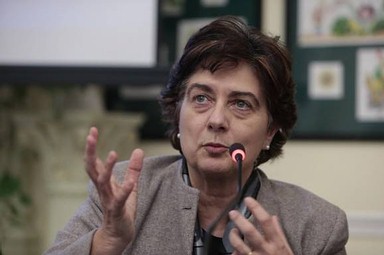“My Sister – Life”. Boris Pasternak
A few months before his death, subjected to a violent defamatory campaign because of his novel Doctor Zhivago, humiliated and excluded from the cultural life and daily under threat of arrest, along with his family, Boris Pasternak replied to Leonard Bernstein, conductor of the New York Philharmonic Orchestra, publicly insulted by the Soviet Cultural Minister, and offended by this behaviour, “What are you saying? What have ministers got to do with this? What importance do you think they have? An artist dialogues with God, and He offers various subjects for him to write about. It may be a comedy or a farce, as in your case; or even a tragedy. But it is all material that the artist can use in his work.”
Pasternak was a symbol for entire generations in Russia, a witness as he was that if life, in the end, is an uninterrupted dialogue with God, all that happens assumes the value of a positivity, of beauty. At Pasternak’s funeral, in May 1960, young writers like Siniavski and Daniel were among the pallbearers, the sign of an ideal escort that continues today. Olga Sedakova, one of the most suggestive voices of present day Russian poetry, recalls that for her and her generation Pasternak’s writings “sounded like Apostolic letters,” they were writings feared and banned by the regime, they circulated only through the clandestine networks of samizdat.
Poet, translator, writer, throughout the whole of his existential and artistic journey, Pasternak developed one great theme, Life. A Life that can take up other names. The first of these is Truth; but also Eternity, Immortality… Life not seen as the object, but as the interlocutor of thought. The title of the exhibition – which means to stress this aspect – is taken from one of Pasternak’s own poems, which gives its name also to one of his most famous collection of verses.
The exhibition – whose panels of texts and photographs alternate with moments of recitation, projection and dialogue – will rotate around three characters emblematic for Pasternak: Hamlet, Faust, and Dr. Zhivago. Pasternak was very familiar with the first two as translator of Shakespeare and Goethe, and the last is the main character in the great novel that earned him the Nobel prize for literature in 1957 (he was forced to refuse it out of fear of retaliation by the Soviet regime).
Hamlet (to whom he dedicated the first poem of the “Dr. Zhivago” cycle), is the emblem of man who comes into life, aware of a responsibility and a sacrifice that are given him as a “mandate.” Faust is the man who tries to “grab” a piece of happiness with his own strength. Dr. Zhivago (the name in Russian has the same root a “life”), is the overcoming of the Faustian temptation and the fulfilment of Hamlets’ expectation.
Created by Adriano Dell’Asta and Giovanna Parravicini
With the collaboration of a group of students of the State University and the Catholic University Milan, and a group of Russian students from various universities.











